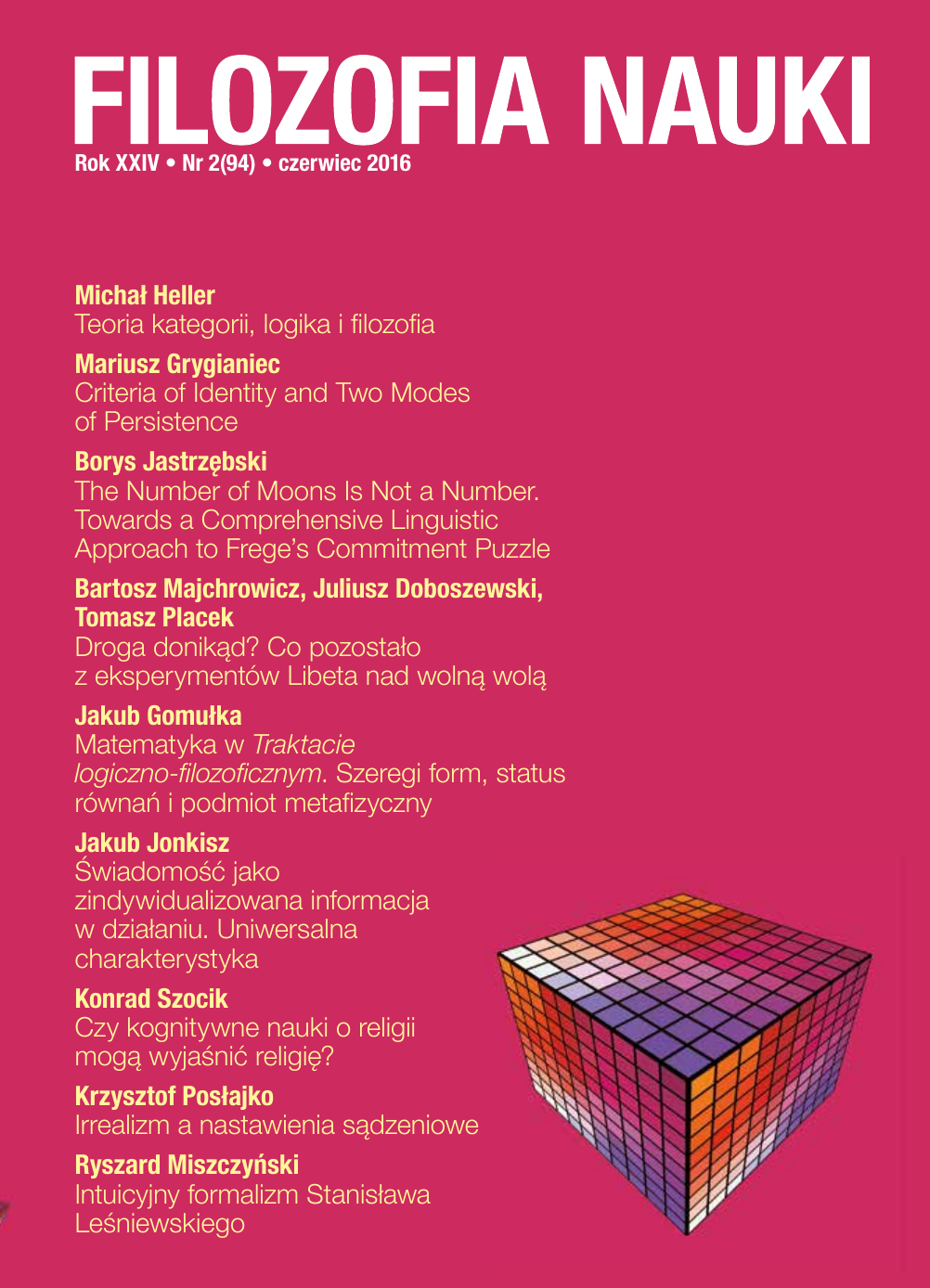Świadomość jako zindywidualizowana informacja w działaniu. Uniwersalna charakterystyka
Słowa kluczowe:
graded consciousness, sensorimotor consciousness, integrated information, individuated information, subjectivityAbstrakt
The aim of the article is to formulate a universal characterization of consciousness, despite the conceptual vagueness of that term. The fundamental aspects of this phenomenon as studied by science consist of four features: its being accessible from the inside and the outside (subjectively and objectively), its being about something (referential), its being bodily determined, and its possessing a certain function (being useful). Approached in this way and in broad terms, consciousness seems to be a graded rather than all-or-none phenomenon. However, it is argued that the main problem for the gradational approach is to establish reasonable, empirically justified limits on how extended (locally and globally) the range of a graded consciousness could be. Such constraints should then help to avoid the counterintuitive consequences of IIT (Integrated Information Theory), which ascribes consciousness even to such simple artificial systems as photodiodes. The article introduces global limits for conscious systems by pointing to the ability to individuate information as a necessary developmental condition of subjective perspectives. Local limits, meanwhile, are determined on the basis of a hypothesis about the action-oriented nature of the processes that select states of consciousness. Ultimately, the limits put forward imply that consciousness is to be characterized as individuated information in action.Pobrania
Opublikowane
2016-06-01
Jak cytować
Jonkisz, J. (2016). Świadomość jako zindywidualizowana informacja w działaniu. Uniwersalna charakterystyka. Filozofia Nauki, 24(2), 95–117. Pobrano z https://www.fn.uw.edu.pl/index.php/fn/article/view/819
Numer
Dział
Artykuły















 Filozofia Nauki | ISSN 1230-6894 | e-ISSN 2657-5868
Filozofia Nauki | ISSN 1230-6894 | e-ISSN 2657-5868